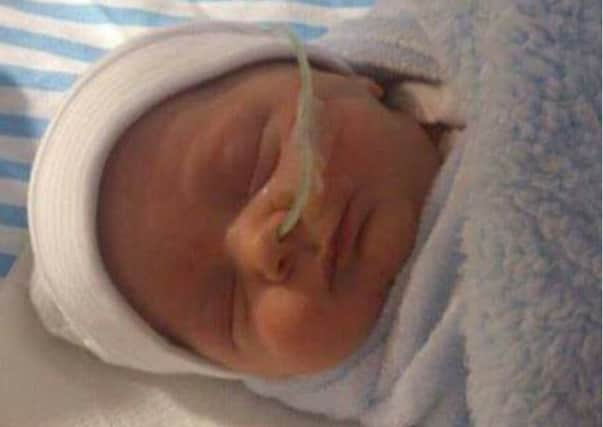'˜Deep regret' over NI baby's death after e.coli infection


Alder Hey Children’s NHS Foundation Trust, based in Liverpool, acknowledged failings surrounding its care for Padraig Henry, who died aged 11 weeks in 2013.
He had been transferred to the hospital for surgery in 2013 after it was suspected he had a perforated bowel.
Advertisement
Hide AdAdvertisement
Hide AdHis family’s legal team from Fletchers – a firm based in Southport, between Liverpool and Blackpool – said in a statement that the hospital had been at high risk of an outbreak of dangerous e.coli bacteria at the time.
The law firm said that surgery was undertaken “despite the threat of Padraig being exposed to the disease” and he went on to be infected by it, dying on July 12, 2013.
In a letter to the family on September 22, the NHS Litigation Authority acknowledged that the trust’s policy on preventing infections had not been followed, and that opportunities had been missed to help stave off illness for Padraig.
An out-of-court settlement of £17,500 in compensation has been agreed.
Advertisement
Hide AdAdvertisement
Hide AdIn a statement revealing the news on Monday, the child’s father Colin Henry (aged 44 and from Kilrea in Co Antrim) said he had been left “deeply distraught” by the death and what he described as “blunders” in Padraig’s care.
The trust said that its old hospital is currently due to be demolished in January, and that an improved facility has been built adjacent to it.
In a statement, it said: “We wish to offer our sincere condolences and apologies to the family of this child.
“The trust deeply regrets this incident in 2013, and accepts that it failed to implement its infection prevention procedures appropriately.
Advertisement
Hide AdAdvertisement
Hide Ad“A full internal investigation was immediately undertaken and we can confirm that lessons have been learned and failings addressed, to ensure this does not happen again.
“A contributing factor to this incident was the limited infection control facilities of the time, with just one isolation cubicle being available.
“In 2015, we opened a new hospital featuring wards which are specifically designed to meet the highest levels of infection control, safety, and quality care.”